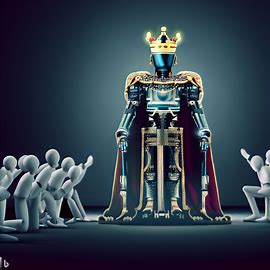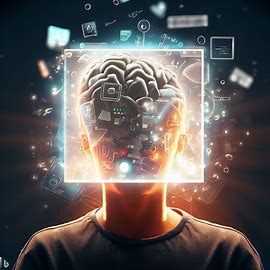New Mind-Reading AI Technology: Should We Be Excited or Afraid?
When ChatGPT was released just a few months ago, it managed to garner around 100 million users in just 2 months. In comparison, Facebook, one of the biggest social media platforms that uses some sci-fi-level advertisements that are literally customized for each individual, only had about one million users by the end of its first year.
ChatGPT showed investors and the common netizen just what artificial intelligence can do and the potential reach it has, and as with any technology that has the potential to change our socio-economic order, a gold rush ensued, which led us to this moment: artificial intelligence learning to read minds.
When sci-fi writers try to imagine how mind-reading technology will affect our lives, they always draw the same conclusion: it won’t serve good as much as it will serve malice. When stripped of our secrets and privacy, we lose a part of our humanity. When we sell out the last bit of privacy we have to these machines since we gave so much of it away by relying on the internet for everything, when robots will have a clear view of what your intentions are because you simply thought about it, then we’ll be fucked.
When you ask the machines what the outcome of their exponential growth will be, they seem so ready to assure you that even though they are better at everything we do, they still need us to operate them and that they are just there to help; as chatGPT says time and time again when asked about the threat it poses to human writers who can simply not compete with the language model that uses billions of texts sourced from its users:
“As an AI language model, my purpose is not to replace human writers but rather to assist them in their work. While AI language models like myself can generate text that is grammatically correct and coherent, we do not possess creativity, emotions, or the ability to generate original ideas in the same way that humans do.
In fact, AI language models can be a valuable tool for writers, helping them to generate ideas, improve their writing, and increase their productivity. For example, I can be used to generate ideas for articles, provide synonyms or suggestions for words, or help with proofreading and editing.
So, there is no need to worry that I or any other AI language model will replace human writers. Rather, AI technology can be a complementary tool to help writers enhance their skills and work more efficiently.”
With how fast this tech is growing, in a few weeks we can expect some research company (probably OpenAI; it’s a monopoly at this point) looking to capitalize on brain reading tech, to perfect the tech, and because so many companies are constantly overworking their employees to outdo their competition, by the end of June, someone will start mass producing this tech, which I am sure will be named Cerebro, and a month after that, they will start rolling out trans-human robots who truly believe that they are people.
It might be a slight exaggeration, but reality is often stranger than fiction, and maybe this can of worms will simply serve to help us build a utopia where everyone spends less time worrying about how shitty life is and instead works to make our personal lives more fulfilling by finding meaning in family and human relations and exploring what it really means to be human.
That is just as much as I can do about the issue: talk about it on a blog and hope enough people read it to know that we are headed to a future worse than anything George Orwell could have imagined.




Leave a Reply